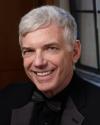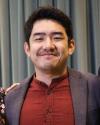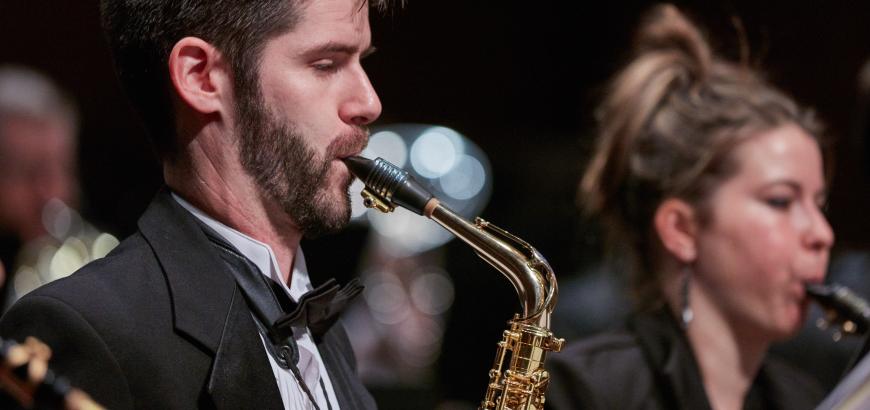The UW Wind Ensemble (Timothy Salzman, director; Roger Wu Fu, assistant conductor) and Symphonic Band (Shaun Day, director) present their end-of-year concert, performing music by Steve Danyew, Michael Markowski, Arturo Márquez, Zhou Tian, Joel Puckett, and Erwin Schulhoff. With special guests Eric Rynes, Pamela Liu, Thane Lewis, and Michael Center.
Masks are recommended in all indoor spaces. Proof of vaccination remains a requirement for everyone 12 and over at Meany Hall and all ArtsUW Ticket Office events, including Meany Center, DXARTS, Dance Department, School of Drama, and School of Music. Individuals unable to be fully vaccinated, including people with a medical or religious exemption, must have proof of a negative provider-administered COVID-19 test (taken within 72 hours of the performance). UW staff will check for proof of vaccination and negative COVID tests at the doors as a condition of entry. Proof of negative test result must come from a test provider, a laboratory or a health care provider. Home or self-administered tests will not be accepted. Details of these policies and procedures are at: https://artsevents.washington.edu/covid-protocols
Thursday, May 26th, 2022, 7:30pm
Meany Hall, University of Washington
University of Washington Symphonic Band
Shaun Day, conductor
Magnolia Star: Steve Danyew (b. 1983)
City Trees: Michael Markowski (b. 1986)
Conga del Fuego Nuevo: Arturo Márquez (b. 1950) arr. Oliver Nickel
University of Washington Wind Ensemble
Timothy Salzman, conductor
Roger Wu Fu, assistant conductor
Seeker’s Scherzo (2016/19): Zhou Tian (b. 1981)
It perched for Vespers nine (2008): Joel Puckett (b. 1977)
Roger Wu Fu, conductor
Concerto for String Quartet and Wind Orchestra (1930): Erwin Schulhoff (1894-1942)
I. Allegro Moderato
II. Largo
III. Tempo di Slowfox
Eric Rynes, Pamela Liu, violin / Thane Lewis, viola / Michael Center, cello
PROGRAM NOTES
Magnolia Star
Steve Danyew utilized a combination of inspirational ideas when creating Magnolia Star. He reflects on his memorable experiences from his middle school jazz band where Danyew’s band director would begin rehearsals with an improvisation exercise that was centered around the blues scale. Danyew was also inspired by the development of the American railroad, which had a lasting impact on American jazz. Magnolia Star was a train that ran from New Orleans to Chicago in the mid-twentieth century with the Panama Limited. This was the perfect focal point for Steve Danyew to create a work that utilized such driving rhythms and various pitch combinations that pays tribute to the blues scale exercise that he grew up with.
City Trees
I had just moved from Arizona to New York City when I began sketching the first fragments of City Trees. After being born, growing up, and living in the desert for 25 years of my life, moving to New York so suddenly was and continues to be one of the most challenging things I’ve ever done. I think it has also been one of the bravest. I left my friends, my family, and my ridiculously cheap rent all without much planning.
Every time I walk down the street in New York, I notice the trees shackled by the sidewalk. Some have little fences around them, amny have trash nestled up next to their exposed roots, and others have grown so big and become so strong that they have broken right through the concrete pavement. As I pass Beneath them, they all seem to wave their leafy pom-poms in the wind, a thousand leaves applauding, cheering me on as if I had just returned from the moon.
These Trees have learned how to brave the concrete jungle, and it gave me solace knowing that they had flourished in such a challenging environment. Over time, the impossibilities of the city have become familiar, and although I continue to learn new lessons every day, I’ve slowly begun to assimilate, finding my way around, discovering new places, and making friends while still keeping close with those who aren
‘t close by. The music in City Trees began to take on a growing sense of perseverance, embodied by the expansive melodies that sweep over the pensive, rhythmic undercurrent.
For me, City Trees is a reflection of the bravery that it often takes to venture into new worlds, embrace other cultures, and lovingly encourage new ideas. I am deeply honored to dedicate this piece to the Lesbian and Gay Band Association. Although I may never Completely understand the unique challenges my friends have faced and had to overcome, I am inspired by the overwhelming courage that has been so firmly planted for 30 years and that continues to grow, perhaps slowly, but always stronger.
Program note by composer
Conga del Fuego Nuevo
Conga del Fuego Nuevo follows the very popular band adaptation of Danzón No. 2 by Arturo Márquez. The title translates to “Conga of New Fire” and is a celebratory piece that is inspired by the Afro-Cuban conga. This work is full of bright melodies with a driving rhythmic motor that will surly last with you well after the performance.
Seeker’s Scherzo
Zhou Tian, born in Hangzhou, China, came of age in a new China marked by economic reforms, and was in the United States by his 19th birthday. Trained at the Curtis Institute of Music (B.M.), the Juilliard School (M.M.) and the University of Southern California (D.M.A.), he studied with some of America’s finest composers, such as Jennifer Hidgon, Christopher Rouse and Stephen Harke. He is associate professor of composition at Michigan State University College of Music. Zhou's "Concerto for Orchestra" – commissioned and recorded by the Cincinnati Symphony and Music Director Louis Langrée – was nominated for a 2018 GRAMMY Award for Best Contemporary Classical Composition. Zhou seeks inspiration from different cultures and strives to mix them seamlessly into a musically satisfying combination for performers and audience alike. His music — described as “absolutely beautiful…utterly satisfying” (Fanfare), “stunning” (the Cincinnati Enquirer), and “a prime example of 21st-century global multiculturalism” — has been performed by leading orchestras and performers in the United States and abroad, such as the New York Philharmonic, Pittsburgh Symphony, Hong Kong Philharmonic, Mahler Chamber Orchestra, U.S. Army Band “Pershing’s Own,” Chanticleer, Jaap Van Zweden, Yuja Wang, and the Shanghai Symphony, where he was the Artist-in-Residence for the 2019/20 season.
Seeker’s Scherzo is a brisk, three-minute ride – it borrows from the classical form while adding new turns and twists, constantly seeking different colors and timbre. Originally a third movement from my "Concerto for Orchestra," this new version has been thoroughly re-orchestrated from my original short score to ensure an optimal “fit and finish” for the large wind ensemble. It is scored lushly and mostly tonally, and almost every instrument is treated soloistically. Behind the power and edginess, there is an unmistakable sense of romanticism in the music.
Program note by composer
It perched for Vespers nine
Joel Puckett is a composer leaving both audiences and the press buzzing. His music has been described as, “soaringly lyrical” (Minneapolis Star Tribune), “Puccini-esque” (Wall Street Journal), and “containing a density within a clarity, polyphony within the simple and – most importantly – beautiful and seemingly spiritual.” (Audiophile Audition). Parterre Box recently proclaimed, “Puckett should be a household name” and the Philadelphia Inquirer’s David Patrick Stearns mused, “if the name Joel Puckett isn’t etched into your brain, it should be.” In 2011 NPR Music listed him as one of the top 100 composers under 40 in the world. Hailed as “visionary” (Washington Post) and “an astonishingly original voice” (Philadelphia Inquirer), his music is performed by the leading artists of our day and is consistently recognized by organizations such as the American Composers Forum, BMI, Chorus America, National Public Radio, and the American Bandmasters Association. Of It perched for Vespers nine he writes:
“My wife’s grandfather was an extraordinary man. He was an immigrant who walked around quoting poetry and whistling tunes from his childhood in Scotland. Like a character from a movie, he always seemed to pull just the right verse for the occasion. In the spring of 2007, he fell into a coma following a severe stroke. After weeks of being in this state, he woke and said:
In mist or cloud…
…On mast or shroud
It Perched for Vespers nine.
Whiles all the night…
…Through fog-smoke white
Glimmered the white moon-shine.
These were the final words of a man who always chose the right words. Within the hour he was gone. Not recognizing the verse, I immediately ran to Google to decipher what message the old man could have been delivering. The verse is from the famous poem of condemnation and redemption, The Rime of the Ancient Mariner by Samuel Taylor Coleridge. The poem is the story of a mariner condemned to travel the earth telling his tale of hubris and punishment in search of redemption. The mariner shot an albatross for no other reason than he felt like it and then suffered the wrath of both death and living-death for his gall. The verse my wife’s grandfather quoted is the verse immediately before the one containing the ill-fated murder of the albatross: as they say, the calm before the coming storm. My work entitled It perched for Vespers nine on a surface level engages the imagery from the verse itself. But at the emotional core of the work is my trying to work out what my wife’s Pop Pop might have been trying to tell us about what awaits us “in mist or cloud.”
Concerto for String Quartet and Wind Orchestra
Erwin Schulhoff was born in Prague to German-Jewish parents and studied in Prague, Vienna, Leipzig, and Cologne, where his teachers included Claude Debussy and Max Reger. He was in the first generation of classical composers to find inspiration in jazz and the avant-garde Dada movement. Schulhoff wrote, "Absolute art is revolution," and he cherished music as "the complete escape from imperialistic tonality and rhythm, the climb to an ecstatic change for the better." In the 1930s, Schulhoff faced mounting personal and professional difficulties. Because of his Jewish descent and his radical politics, he and his works were labelled degenerate and blacklisted by the Nazi regime. He could no longer give recitals in Germany, nor could his works be performed publicly. His communist sympathies, which became increasingly evident in his works, also brought him trouble in Czechoslovakia. Taking refuge in Prague, Schulhoff found employment as a radio pianist, but earned barely enough to cover the cost of everyday essentials. When the Nazis invaded Czechoslovakia in 1939, he had to perform under a pseudonym. In 1941, the Soviet Union approved his petition for citizenship, but he was arrested and imprisoned before he could leave Czechoslovakia. In June 1941, Schulhoff was deported to Wülzburg concentration camp in Bavaria where he died of tuberculosis. Of this evening’s work, Frank Battisti writes:
"The Concerto is fashioned in the traditional three-movement concerto form with an energetic Hindmith-like first movement, a slow torchy second movement, and a final third movement with jazz references, including a tempo marking of 'slow fox,' as in fox trot. It was premiered in 1932 on a concert by the Czech Philharmonic."
Guest Artists
Eric Rynes has been hailed for his “committed,” “intrepid,” and “achingly beautiful” performances in diverse styles and genres, from recitals of the “thorniest” new music (Seattle Weekly), to his work as concertmaster and concerto soloist with the Northwest Symphony Orchestra, to evenings of authentic Argentine tangos and appearances with jazz and rock groups. Particularly known for his expertise in new music, having studied in Europe with Maryvonne Le Dizès (Ensemble Intercontemporain) and Irvine Arditti, he has premiered solo works in Berlin, Havana, Chicago, Barcelona, Rotterdam, San Diego, and many other cities, often with live electronics. With orchestras, he has performed concertos by Bartók, Beethoven, Barber, and Shostakovich, and hundreds of symphonic works under conductors including Barenboim, Boulez, and Slatkin. Chamber music partners have included violist Garth Knox, cellist Séverine Ballon, and pianist Jovino Santos Neto; as a sideman, Eric has performed with Sufjan Stevens and Rod Stewart. He has recorded in numerous capacities and genres, provided live and recorded music for plays by Chekhov and Ibsen, served on the violin faculty of Marrowstone Summer Music in Bellingham WA, adjudicated for competitions and grant proposals, and lectured on composing for the violin at universities stretching from Washington State and Montana to the U.K. He received his M.M. in violin and a graduate certificate in statistical genetics from the University of Washington, and degrees in physics from the University of Chicago and the University of Illinois.
Pamela Liu, violinist, has been in demand as a performer and pedagogue since returning to the Northwest six years ago. She received her Bachelors in Violin Performance at the Shepherd School of Music at Rice University, and was a member of the Evergreen Symphony Orchestra in Taipei, Taiwan, before attending the University of Washington where she received a Masters Degree in Violin Performance. Ms. Liu coaches and teaches with the Seattle Youth Symphony Orchestras, and Musicworks Northwest. She is concertmaster of the Cascade Symphony, section violinist of the Yakima Symphony and part of the violin-guitar duo, Tutti Dolce, with husband Chris Liu.
Thane Lewis is Principal Violist of the Tacoma Symphony. He performed with the Northwest Sinfonietta and played Assistant Principal Viola of the Boise Philharmonic and as an extra with the Oregon Symphony, the Anchorage Symphony, the Auburn Symphony, the Pacific Northwest Ballet Orchestra, and the 5th Avenue Theater Orchestra. As a chamber musician, Mr. Lewis has performed with the Onyx Trio and in the Seattle Symphony Player's chamber music series. Mr. Lewis has appeared twice on KING FM's NW Focus Live and as soloist with the Tacoma Symphony, the Eastside Symphony, Octava Chamber Orchestra, the Vashon-Maury Island Chamber Orchestra and the Lake Union Civic Orchestra in Seattle’s Town Hall. The Tacoma News Tribune described his performance as full of "passion and flourish." Mr. Lewis played on the Grammy Award winning 2003 album "Fallen" by Evanescence and on thirty movie, commercial and television soundtracks. His biography of violinist Steven Staryk, "Fiddling With Life," published by Mosaic Press of Toronto in 2000, followed close on completion of graduate work in Violin Performance at the University of Washington.
Michael Center holds degrees in music from the New England Conservatory and the Peabody Institute, where his teachers were Colin Carr and Ronald Thomas. His early studies were with Toby Saks in Seattle. As an orchestral musician, he has been a member of the Sacramento Symphony, the Phoenix Symphony, and the Washington Chamber Orchestra, of which he was a founding member and principal cellist. While in Baltimore, he played with the award-winning Trio Fervore, which played many concerts and was featured in radio broadcasts in Boston, Baltimore, and New York. As a chamber musician, he has also concertized with members of the Juilliard, Vermeer, Chicago, and Audubon String Quartets and has performed with musicians from the San Francisco, Cleveland, Minnesota, and Chicago Symphonies. Mr. Center has participated in the Prague, Taos, Music in the Mountains, Red Rocks and Utah chamber music festivals. He has performed chamber music, concertos, and recitals throughout the U.S. as well as in Europe and Asia. As a soloist, Michael has collaborated with orchestras and conductors across the Pacific Northwest region. Since returning to Seattle in 2009, he has performed cello concerti with the Seattle Festival Orchestra (Saint-Saëns), University of Washington Wind Ensemble (Ibertand Puckett), Lake Union Civic Orchestra (Dvorak, Shostakovich #1, Schumann), OctavaChamber Orchestra (Tchaikovsky and Haydn D Major), Rain City Symphony (Brahms Double), and the Port Angeles Symphony (Haydn C Major). Michael Center has taught chamber music and cello lessons at the School of the Arts in San Francisco, the Marrowstone Music Festival, and the Peabody Conservatory as the teaching assistant of Ronald Thomas. He is currently principal cellist of the Lake Union Civic Orchestra, frequent guest principal cellist of the Port Angeles Symphony Orchestra and appears regularly in chamber music performances. In his spare time he enjoys cooking and travel.
University of Washington Symphonic Band
|
Director and Conductor Bios

University of Washington Professor Emeritus Timothy Salzman served as Professor of Music/Director of Concert Bands and conductor of the UW Wind Ensemble from 1987 to 2025. When he was appointed to the position there were 11 students enrolled in one UW wind band – in his final year there were 335 enrolled in five bands. Former graduate wind conducting students of Professor Salzman have obtained positions at 73 universities and colleges throughout the United States and include past presidents of the American Bandmasters Association and the College Band Directors National Association as well as Jiannan Cheng, cover conductor for the Philadelphia Orchestra. During his tenure at the UW the band program was involved in commissioning and, in certain cases, the premiering of 38 new works for wind ensemble and undertook many concert tours including seven to Asia. From 1978 to 1983 he was band director in the Herscher, Illinois, public school system where the band program received numerous state, regional and national awards in solo/ensemble, concert and marching band competition. Immediately prior to his UW appointment he served for four years as Director of Bands at Montana State University where he founded the MSU Wind Ensemble and ‘Spirit of the West’ Marching Band. Professor Salzman holds degrees from Wheaton (IL) College, and Northern Illinois University, and studied privately with world-renown wind instrument pedagogue Arnold Jacobs, former tubist of the Chicago Symphony Orchestra. He has numerous publications for bands with the C. L. Barnhouse, Arranger's Publications, Columbia Pictures, Hal Leonard Publishing and Nihon Pals publishing companies, and has served on the staff of new music reviews for The Instrumentalist magazine. Professor Salzman has been a conductor, adjudicator, arranger, or consultant for bands throughout the United States and in Canada, England, France, Russia, South Korea, Indonesia, Thailand, Singapore, the Philippines, China, and Japan, a country he has visited twenty-one times. He has traveled to China twelve times where he served as visiting professor at the China Conservatory, given master classes for numerous wind bands, and conducted several ensembles including the Shanghai Wind Orchestra, the People's Liberation Army Band, the Beijing Wind Orchestra, The China Conservatory Wind Ensemble and the Tsinghua University Band in multiple concerts. He also served on three occasions as an adjudicator for the Singapore Youth Festival National Concert Band Championships. He has conducted several of the major military bands in the United States including a 2019 world premiere with 'The President's Own' United States Marine Band. He was compiling editor and co-author (with several current and former UW graduate students) of A Composer's Insight: Thoughts, Analysis and Commentary on Contemporary Masterpieces for Wind Band, a five-volume series of books on contemporary wind band composers. The forwards to each volume were written by five Pulitzer Prize-winning composers. He was also a contributing author to a recent book (2022) about his former teacher entitled Arnold Jacobs: His Artistic and Pedagogical Legacies in the 21st Century. Professor Salzman is an elected member of the American Bandmasters Association and is a past president of the Northwest Division of the College Band Directors National Association. He is an elected member of the Drum Corps International Hall of Fame as well as the Santa Clara (CA) Vanguard and Cavaliers (IL) Drum and Bugle Corps Hall of Fame for his work as an arranger and brass instructor. In 2009 Nihon Pals, a music education resource company based in Osaka, Japan, released a set of instructional DVDs regarding ensemble musicality featuring the UW Wind Ensemble. The University of Washington hosted the 2011 National Conference of the College Band Directors National Association.

As a conductor, trumpet player, and educator, Shaun Day enjoys sharing his passion by working with a variety of music ensembles and creating a positive community through music. Shaun is completing his DMA in Instrumental Conducting at the University of Washington where he is the director and conductor for the UW Symphonic Band, and the associate conductor for the UW Wind Ensemble. He is also serving as the Conductor and Artistic Director for the Mukilteo Community Orchestra and enjoys connecting with local music educators in the Seattle area. Shaun continues to work as an ensemble clinician, guest conductor, and as a presenter at music education conferences, including the Washington Music Educators Association (WMEA) State Conference.
Originally from Cincinnati, Ohio, Shaun earned his BM in Music Education with a concentration in trumpet performance, and his MM in Conducting from the University of Cincinnati, College-Conservatory of Music (CCM). During that time, he was the manager of the CCM Wind Symphony, CCM Brass Choir, the University Commencement Band, and a Graduate Assistant of the University of Cincinnati Bearcat Band. Shaun also served as the Associate Conductor of the University of Cincinnati Symphony Orchestra and Guest Conductor for the Fillmore Philharmonic Brass (OH).
Before completing his MM, Shaun was the assistant band director at Turpin High School in Cincinnati. His duties included directing the high school concert bands, directing the high school jazz program, the musical theatre pit orchestra, assisting and directing the high school marching band program, and directing the 5th-12th concert bands. His professional affiliations include the College Band Directors National Association (CBDNA), Washington Music Educators Association (WMEA), and the Ohio Music Education Association (OMEA) where he served as the District XIV Secretary and Treasurer from 2016-2018.

M.M Wind Conducting, Peabody Institute of the Johns Hopkins University, 2020
M.Ed. Education, Concordia University Irvine, 2018
B.A. Anthropology, University of California Los Angeles, 2014
Recent works include producing and music directing his original musical “Yappie: The Musical” and its concept album premiere, music directing chamber operas exploring the relationship between growth and suffering in Baltimore’s contemporary opera scene, and presenting research on instrument pedagogy, choice, and personality at Ohio State University. At the Peabody Institute of the Johns Hopkins University, Roger worked as a conductor, performer, teaching assistant and faculty substitute. Through summer conducting workshops, Roger has worked with conductors including Dr. Travis Cross, Dr. Mallory Thompson, Professor Charles Peltz, Dr. Cynthia Johnston Turner, Dr. Mark Scatterday, Professor Kevin McKeown and Dr. Mitchell Fennell. Drawing from his own varied background studying anthropology at the University of California, Los Angeles, and Wind Conducting at Peabody Institute of the Johns Hopkins University, Roger seeks to combine a high standard of musical performance with a rigorous academic approach, always seeking to explore and present music in a new and different light.
Outside of music, Roger works with the mental health foundation Healthy Gamer by providing peer-delivered recovery support services as a group and personal coach. In his offtime, Roger enjoys being a mediocre cook, catching up on popular shows from half a decade ago, and biking. Roger is extremely excited to join the Husky family at UW, and get to know the PNW at large - Go Dawgs!
